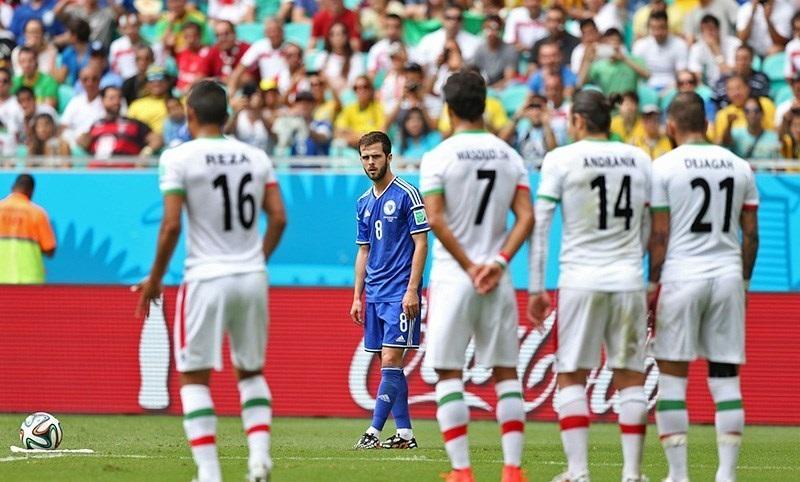Nike Decides Against Providing Footwear to Iranian World Cup Team, Citing U.S. Sanctions

There has been much controversy surrounding Nike’s decision to not provide Iran’s National Team (Team Melli) players with boots.
The decision follows U.S. withdrawal from the JCPOA, an international nuclear agreement with Iran and world powers including the United States. On Friday, Nike said, “The sanctions mean that, as a U.S. company, we cannot supply shoes to players in the Iran National team at this time.” This announcement comes just days prior to their opening match against Morocco, sending Iranian players scrambling to settle the shoes they would be wearing on game day. Some players have approached non-Iranian players on their club teams to loan them boots, while others have purchased their own boots from footwear stores.
Nike added that the sanctions preventing the company from working with the Iranian team have existed through multiple administrations. However, Nike may have supplied Team Melli in the 2014 World Cup in Brazil when similar sanctions were in effect.
So exactly what part of the U.S. sanctions could possibly have permitted Nike from upholding their agreement to provide the cleats to Team Melli players?
General License F
General License F (GLF) authorizes certain services in support of professional and amateur sports activities and exchanges involving the United States and Iran. More specifically, the reexportation of services, directly or indirectly, from the United States or by a U.S. person related to professional sporting activities involving the US and Iran are authorized, including but not limited to, activities related to the exhibition matches/events, the sponsorship of players, coaching, refereeing, and training.
Any U.S. nexus is normally sufficient to invoke the concern of U.S. sanctions. OFAC may take a narrowly tailored approach in interpreting GLF. This means that considering the use of GLF could require the nationals of both countries to be directly involved in the sporting activities, or that Nike’s sponsorship of the Iranian players, which may include providing cleats, is carved out of the GLF as that segment is considered as an exportation of goods rather than under the umbrella of providing a service such as team sponsorship.
General License H
Alternatively, if Nike, through a foreign subsidiary, has an existing contract (initiated prior to May 8th) with FIFA and/or the Iranian Football Federation regarding the sponsorship of equipment for the World Cup games, then Nike could possibly provide the boots while remaining compliant with OFAC regulations.
Nike could have possibly upheld its end of any agreement and still supplied the equipment to Team Melli under General License H (GLH). GLH authorizes certain transactions involving non-US subsidiaries of US companies and Iran. If there exists an agreement, prior to the May 8th, 2018 JCPOA withdrawal announcement, providing that Nike (through one of its foreign subsidiary) is to provide Team Melli with equipment, then Nike would have had justifiable means in which they could legally operate during the wind-down periods. One would assume that Nike’s soccer shoes are not U.S. origin goods in today’s globalized manufacturing system but if the shoes were substantially based on U.S. technology then even the use of GLH would have been problematic.
Nevertheless, there is a multitude of factors that could have contributed to Nike’s decision to not outfit Team Melli. Until the discovery of further facts, it is uncertain whether Nike’s decision was necessary, an instance of over-compliance, or simply a change in internal compliance policy due to increased sanctions liability.
Disclaimer: Blog posts should not be relied upon as legal advice and are only provided for informational purposes. Information contained in blog posts may also become outdated with the passage of time as laws change and US foreign policy and national security objectives evolve.

